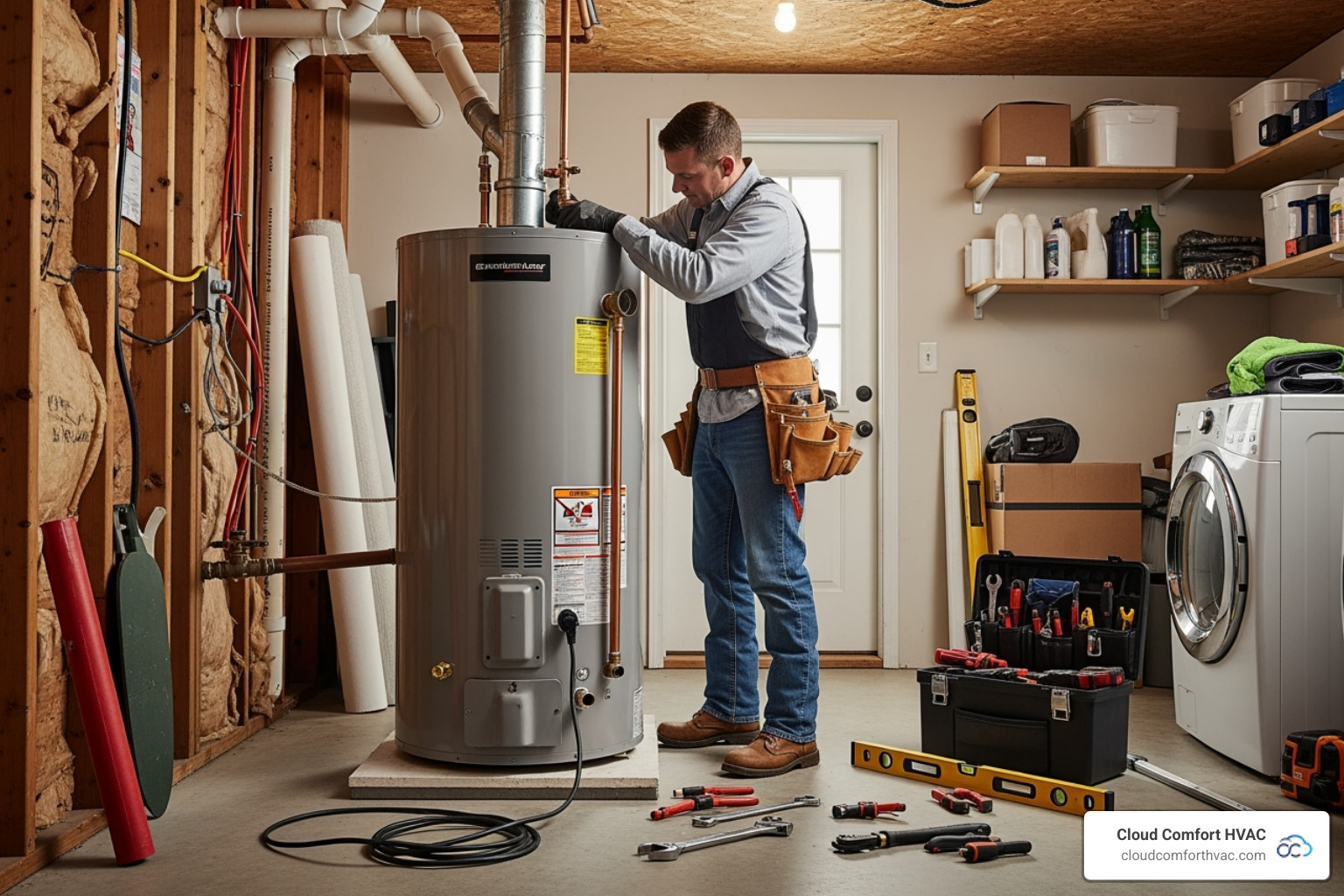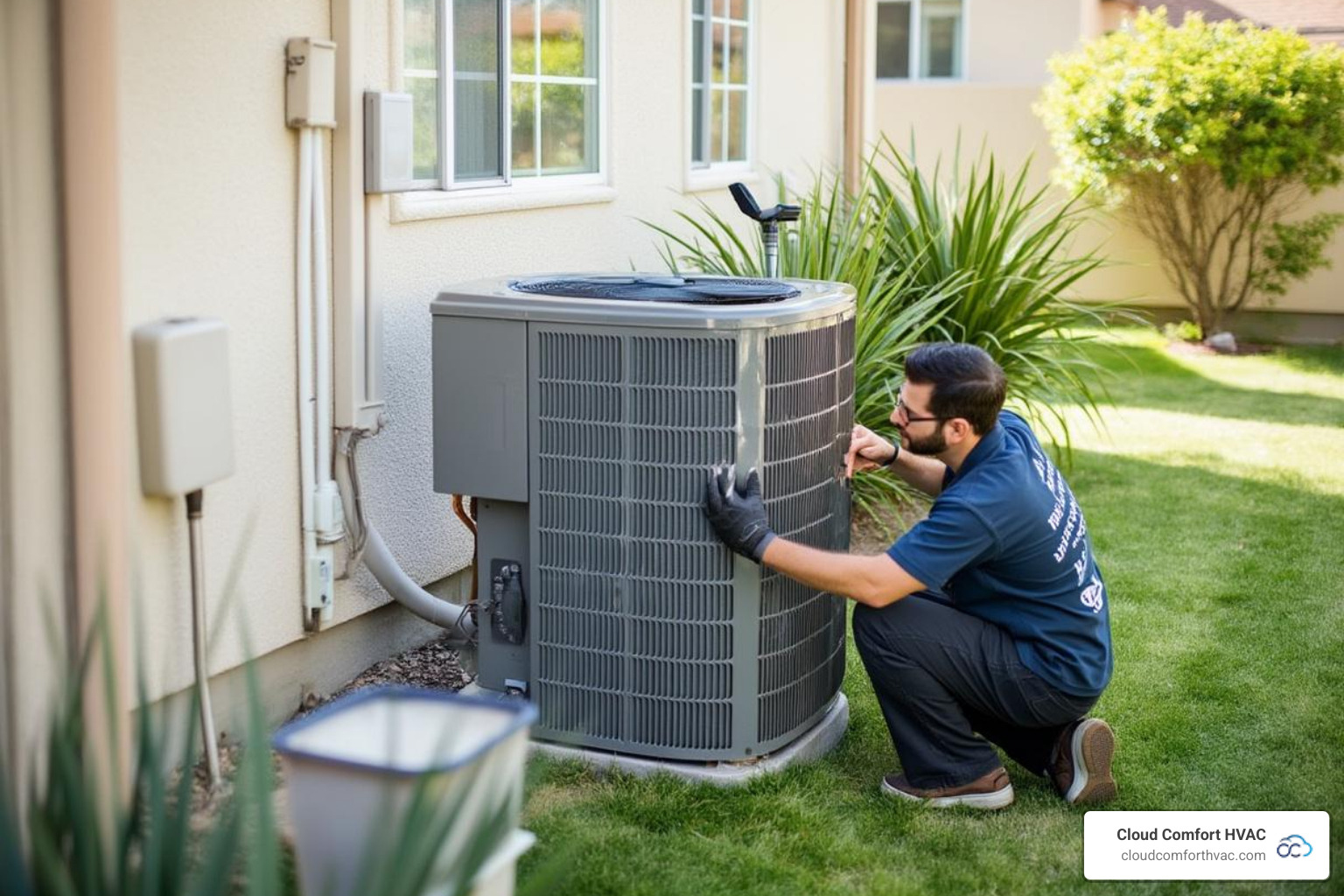Top 5 Questions to Ask Before Replacing Your Furnace
Replacing a furnace is a major decision that affects not only your home’s comfort but also your budget and energy bills for years to come. With many options available in today’s market, it’s important to ask the right questions to ensure you’re making the best choice for your needs. Before committing to a new furnace, here are the top five questions you should ask to help you make an informed decision.
1. Is Furnace Replacement Necessary, or Could a Repair Be Sufficient?
Before investing in a new furnace, it’s wise to assess whether replacement is truly the best option. If your furnace is still within its lifespan (typically around 15-20 years), a repair might solve your issues and extend its life for several more years. A professional inspection can help you determine the current condition of your furnace, giving you a better idea of whether a repair or a replacement is most cost-effective. Consider the age of your furnace and the frequency and cost of recent repairs to help make this decision.
2. What Type of Furnace is Best for My Home?
Once you decide that replacement is the right option, it’s time to explore the different types of furnaces available. The most common types are gas, electric, and oil furnaces, each with unique benefits and considerations. For instance:
- Gas Furnaces: These are typically the most cost-effective to run, particularly in colder climates. However, they require a natural gas connection.
- Electric Furnaces: These are generally easier to install and don’t require a gas line, but they can be more expensive to operate.
- Oil Furnaces: Less common but still available, oil furnaces are an option in areas where gas is not readily available.
Consider factors like your home’s existing energy infrastructure, climate, and your budget when selecting the furnace type that will provide the best balance of performance and cost-efficiency.
3. How Energy Efficient is the New Furnace?
Energy efficiency is a key factor in selecting a new furnace, as it impacts your long-term energy bills and environmental footprint. Furnace efficiency is measured by its Annual Fuel Utilization Efficiency (AFUE) rating, which indicates how effectively the furnace converts fuel into heat. Higher AFUE ratings mean more efficient operation, which translates to lower monthly heating costs and a smaller environmental impact.
Ask about high-efficiency models, particularly those with an AFUE rating of 90% or higher. Although these models may cost more upfront, they can provide significant savings on energy bills over time, making them a smart long-term investment.
4. What is the Total Cost, Including Installation?
The cost of a new furnace isn’t just about the unit itself; installation is also a significant part of the total price. Furnace replacement involves labor costs, potential upgrades to your ductwork, and any necessary modifications to your home’s heating infrastructure. Always request a detailed estimate from your HVAC provider that includes both the cost of the furnace and the installation. Additionally, check for any potential rebates, financing options, or tax incentives for installing an energy-efficient furnace, as these can help make the upfront cost more manageable.
5. What Maintenance Will the New Furnace Require?
Different furnaces come with different maintenance requirements. Before making a purchase, it’s helpful to know what kind of maintenance schedule your new furnace will need to keep it running efficiently. Routine maintenance can include tasks like filter replacements, annual inspections, and periodic cleanings. Knowing what’s required ahead of time helps you budget for maintenance costs and prevents unexpected issues down the road.
Ask your HVAC technician about maintenance plans they may offer, as regular professional servicing can maximize your furnace’s lifespan, efficiency, and warranty coverage.
How Cloud Comfort HVAC Can Help with Furnace Replacement
At Cloud Comfort HVAC, we understand that replacing a furnace is a big decision. Our team is here to provide expert guidance, answering your questions and helping you choose the best heating solution for your home. With our range of high-efficiency furnaces, transparent pricing, and dedicated installation team, we make the replacement process as smooth and straightforward as possible.
Ready to Explore Your Options?
Contact Cloud Comfort HVAC in Rancho Palos Verdes today or book a consultation online. Let us help you choose a reliable, energy-efficient furnace that meets your needs and keeps your home comfortable for years to come.

.avif)
Customer Testimonials
Hundreds of 5-Star Reviews on Google Show Our Commitment to Customer Satisfaction




New Air Conditoining Unit for as low as $79/mo + Free Wi-Fi Thermostat
(Or As Low As $4,995 as a One-Time Payment)
FINANCE WITH $0 PAYMENTS & 0% INTEREST FOR 12 MONTHS, OAC
Hurry! Offer Ends Soon.






